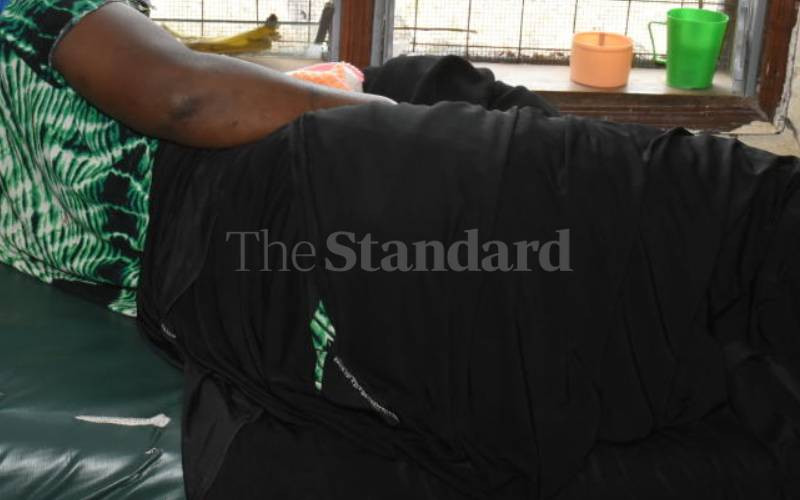By Bernard Muthaka
To most people, the word ‘pathology’ evokes images of a grim daily existence, surrounded by cadavers and policemen to provide clues regarding the cause of death of crime victims. Dr Ahmed Kalebi’s career has been almost as dramatic as the TV crime investigation series.
Consider the fact that for the last five years he has been named in the global list of Who is Who in Pathology; was the founder chairman of the College of Pathologists of East, Central and Southern Africa and that he is only 38 years of age. Nothing has come easy for Kalebi, who grew up in Kibera where survival is only for the fittest and academic excellence for the truly gifted.
Proper electricity
“The first time I used proper electricity to study was at the University of Nairobi,” says Kalebi, who is currently the managing director and chief consultant pathologist at Pathologists Lancet Kenya, part of the internationally recognised Lancet Group of Laboratories.
“What most people don’t know is that pathologists are integral in the investigation and diagnosis of causes of diseases, and that the career is a far broader profession,” he explains.
Pathology has been referred to as the ‘science behind the cure’, with pathologists dealing with the nature and causes of diseases. They are involved in almost every aspect of medicine, from diagnostic testing to monitoring of chronic diseases.
Unlike what is portrayed on television, most pathological work is done on blood and other tissues from living people, and the medical practitioner who interacts with the patient will depend very much on the knowledge, diagnostic skills and advice of pathologists.
Cancer cases
According to the World Health Organisation (WHO), about half a million new cancer cases occurred in Sub-Saharan Africa every year. Eight of every ten of these cases die from the disease. It is projected that this number will rise by more than 85 per cent by 2030, largely because of westernisation of lifestyles that result in more cancers.
For men, the most common cases are prostate cancer, liver cancer, Kaposi’s sarcoma, and oesophageal cancer, while women will mostly have cervical cancer, breast cancer, liver cancer, and Kaposi’s sarcoma.
An international review published in The Lancet says that cancer control strategies are poorly placed to respond to cancer as a major clinical and public health issue in Sub-Saharan Africa.
The review says that cancer surveillance in Sub-Saharan Africa is insufficient. Kenya’s cancer registry in Kenya, which is based at Kemri, is not among those cited as doing a commendable job. Only three population-based registries in the Gambia, Uganda and Zimbabwe are cited.
Still, unlike the USA where more than 80 per cent of the population is covered by cancer registries, only about 1 per cent of African population is presently covered.
Data from cancer registries are needed to estimate cancer incidence and mortality, but also to guide policy-makers’ decisions for cancer control and the allocation of clinical and public health services. Apart from poor data from cancer registries, the review says there is inadequate personnel training and equipment for pathology services.
According to The Lancet review, all countries in Africa apart from Botswana and South Africa have fewer than one pathologist for every 500,000 people, with most actually having fewer than one pathologist for every one million people.
Just few students in Kenya study pathology in colleges
Kenya has only about 30 pathology experts in practice.
Pathology does not attract doctorate students, probably because it is not glamorous. This year, there were only five people who applied as registrars in that discipline at the University of Nairobi and Aga Khan University Hospital, compared to hundreds in other specialities such as paediatrics which attracted hundreds, according to Dr Ahmed Kalebi.
The lack of capacity has direct impact on the quality of medical care. Experts say it may mean that a particular patient with suspected malignant disease will not receive an adequate pathological diagnosis, and may end up receiving expensive cancer treatment for what may have been only a benign lesion.
“Apart from inadequate or inappropriate treatment, improper pathology services in cancer diagnosis can lead directly to poor follow-up, delays in treatment and increased cancer morbidity and mortality,” says the Lancet review. It calls for development of a pathology system that brings together elements of diagnostic support, training and research and cites the example of the Moi Teaching and Referral Hospital in Eldoret, Kenya, where an international project is providing support to the hospital.
The Academic Model for Providing Access to Health care has provided clinical support for patients at the referral hospital.
 The Standard Group Plc is a multi-media organization with investments in media platforms spanning newspaper print
operations, television, radio broadcasting, digital and online services. The Standard Group is recognized as a
leading multi-media house in Kenya with a key influence in matters of national and international interest.
The Standard Group Plc is a multi-media organization with investments in media platforms spanning newspaper print
operations, television, radio broadcasting, digital and online services. The Standard Group is recognized as a
leading multi-media house in Kenya with a key influence in matters of national and international interest.











